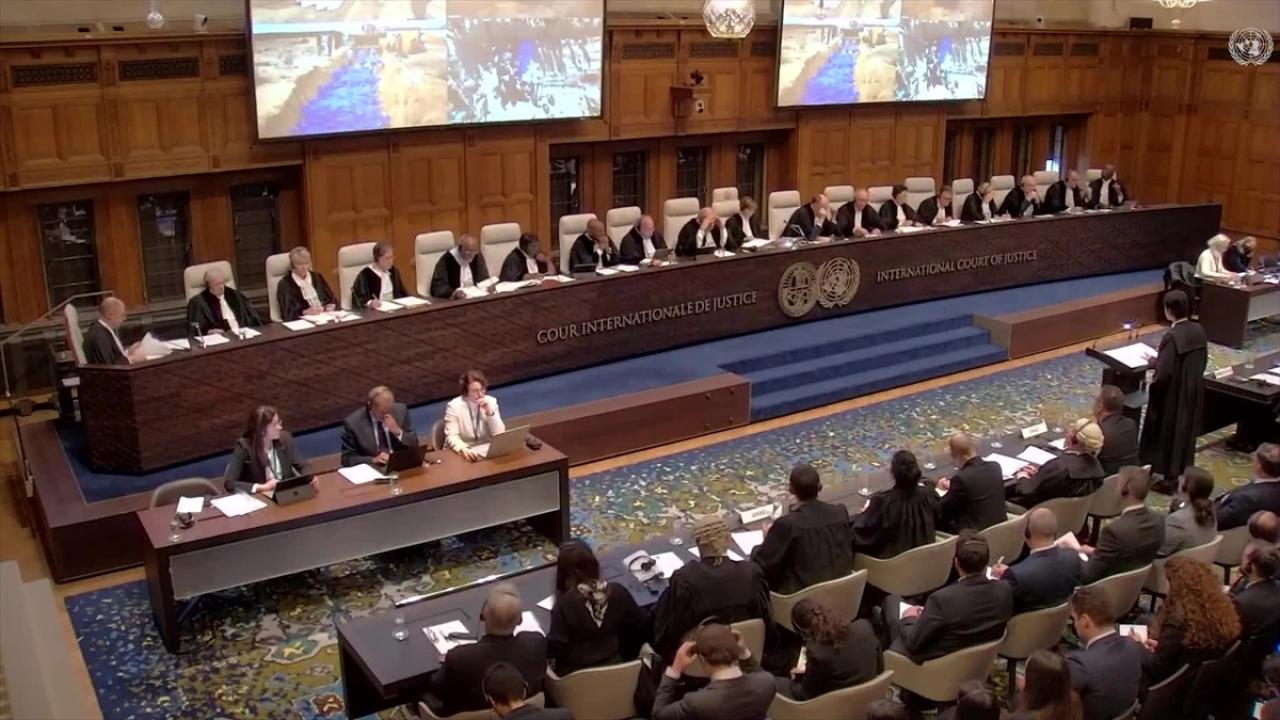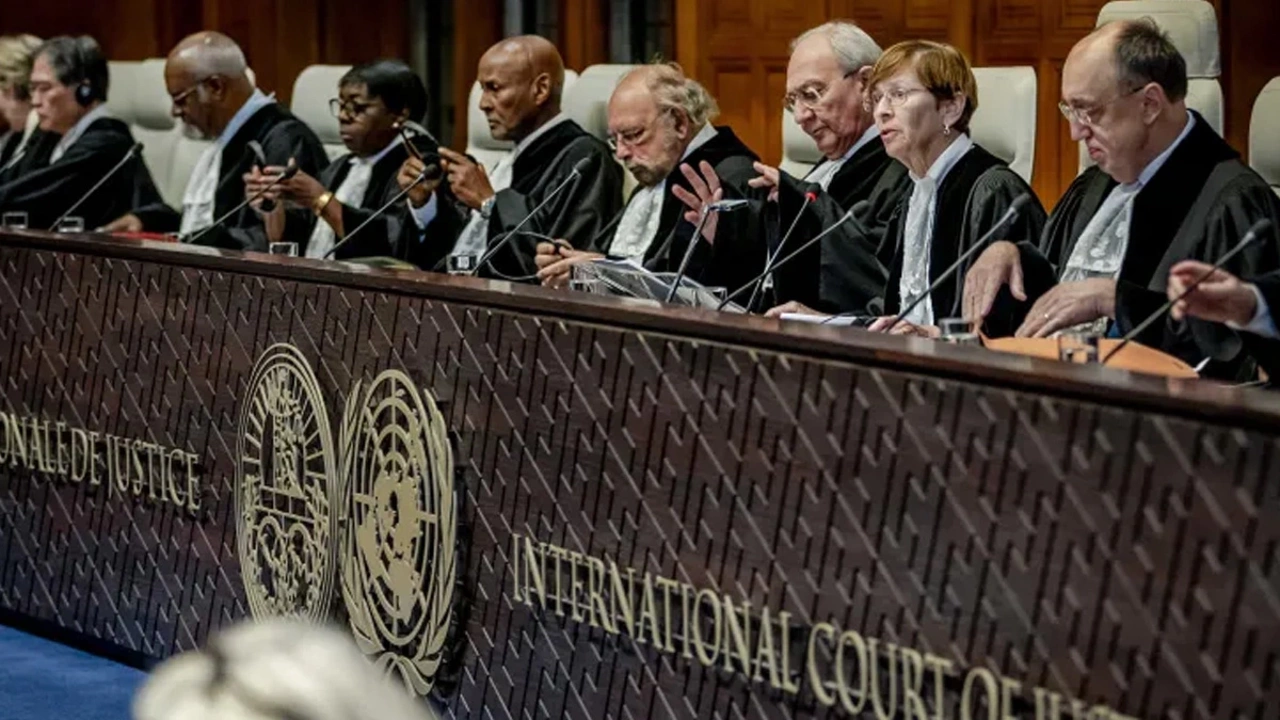
Three Arab judges in the case brought by South Africa against Israel in the International Court of Justice have become the focus of attention
Three Arab judges in the case brought by South Africa against Israel in the International Court of Justice have become the focus of attention
With the start of the trial in the case filed by the Republic of South Africa against Israel in the International Court of Justice on charges of committing genocide in the Gaza Strip, 3 Arab judges of the judicial board have become the focus of attention.
Three Arab judges in the case of South Africa against Israel at the UN International Court of Justice were in the spotlight
According to the list published on the official website of the International Court of Justice, Mohamed Bennouna from Morocco, Nawaf Salam from Lebanon and Abdulkawi Youssef from Somalia are mentioned on social networks.
Established as the main judicial body of the United Nations to resolve legal disputes between countries, the International Court of Justice consists of a panel of independent judges known for their competence in the field of international law, regardless of their nationality.
The Judicial Board consists of 15 members elected from a list of candidates by the General Assembly of the United Nations and the Security Council, the term of office of these members is 9 years with the right to re-election.
Arab judges of the International Court of Justice:
Abdulkawi Yusuf is from Somalia.
Abdulkawi Yousef, who has held numerous academic and international positions at the United Nations, was born in 1948.
After being elected to the International Court of Justice on February 6, 2009, Yusuf extended his membership on February 6, 2018 and served as Deputy President of the International Court of Justice from February 6, 2015 to February 5, 2018, and as President of the International Court of Justice from February 6, 2018 to February 8, 2021.
In March 2001, Yusuf was appointed Legal Adviser to the United Nations Educational, Scientific and Cultural Organization (UNESCO) and Director of the Office of International Standards and held this position until January 2009.
He also lectured on international law at the Faculty of Law of the National University of Somalia (1974-1980), was an associate professor at the Faculty of Law of the University of Geneva (1981-1983) and a visiting professor of public international law at universities in several countries, including Italy.
Moroccan judge Mohamed Bennouna
Bennouna was born in 1943. He graduated from The Hague Academy of International Law. He has held various positions in the United Nations and international law.
Bennouna, a Moroccan citizen, was elected a member of the International Court of Justice on February 6, 2006 and was re-elected to this post on February 6, 2015.
As a member of the Institute of International Law, Bennouna worked as a special judge at the UN International Court of Justice in the case of the Border Dispute between Niger and Benin (2002-2005).
Bennouna was appointed Ambassador and Permanent Representative of Morocco to the United Nations in 2001 and held this position until 2006.
From 1998 to 2001, he worked as a judge at the International Criminal Court.
Lebanese judge Nawaf Salam
Nawaf Salam was born in Beirut in 1953. He received a master's degree from Harvard Law School and has worked in many legal fields at the United Nations.
Salam was elected to the International Court of Justice on February 6, 2018 and previously served as Ambassador and Permanent Representative of Lebanon at the UN Headquarters in New York from 2007 to 2017.
Salam represented his country in the UN Security Council during Lebanon's non-permanent membership (2010-2011).
In addition, he was a member of the 67th United Nations Congress from September 2012 to 2013. Selam, who served as Vice-President of the General Assembly, represented his country at the United Nations Economic and Social Council (ECOSOC) in 2016.
Selam's name was repeatedly mentioned among the candidates for Prime Minister.
The "Genocide Case" filed by South Africa against Israel in the UN International Court of Justice
On December 29, 2023, the Republic of South Africa filed a lawsuit with the International Court of Justice on the grounds that Israel's attacks on Gaza violate the Genocide Convention, requesting a temporary injunction against Israel.
In this context, South Africa is asking the International Court of Justice to issue 9 temporary injunctions.
These resolutions include: "Israel immediately cease its military operations in Gaza, take all reasonable measures necessary to prevent the genocide of the Palestinians, ensure that displaced persons return to their homes and have access to humanitarian assistance, including adequate food, water, fuel, medical and hygiene items, shelter and clothing, take necessary measures to punish those involved in the genocide and preserve evidence of the genocide."
South Africa appealed to the International Court of Justice to issue an injunction due to the urgency of the situation, and after the hearing, the Court examined the statements and evidence of the parties and began negotiations on a decision.
There is no mandatory date for judges to announce a verdict, but if we look at previous trials in the International Court of Justice, we will see that this period is several weeks in urgent cases such as genocide.
